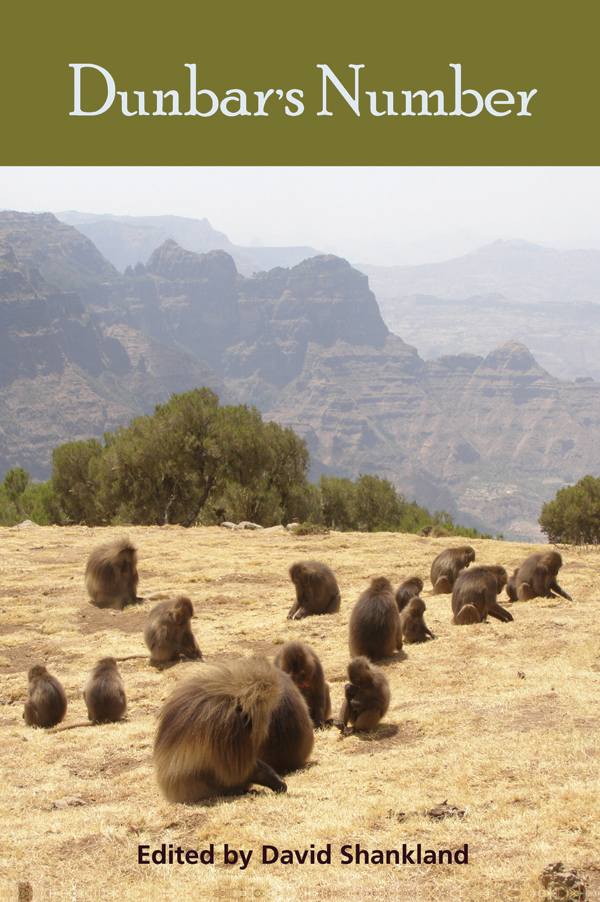
Dunbar’s Number
Edited by David Shankland
Occasional Paper No. 45 of the Royal Anthropological Institute.
Dunbar’s Number, as the limit on the size of both social groups and personal social networks, has achieved something close to iconic status and is one of the most influential concepts to have emerged out of anthropology in the last quarter century. It is widely cited throughout the social sciences, archaeology, psychology and network science, and its reverberations have been felt as far afield as the worlds of business organization and social-networking sites, whose design it has come to underpin. Named after its originator, Robin Dunbar, whose career has spanned biological anthropology, zoology and evolutionary psychology, it stands testament to the importance of an interdisciplinary approach to human behaviour. In this collection Dunbar joins authors from a wide range of disciplines to explore Dunbar’s Number’s conceptual origins, as well as the evidence supporting it, and to reflect on its wider implications in archaeology, social anthropology and medicine.
CONTENTS:
Chapter 1: Dunbar’s time and human evolution – Clive Gamble; Chapter 2: From there to now, and the origins of some ideas – Robin Dunbar; Chapter 3: From 150 to 3 Dunbar’s numbers – Russell A. Hill; Chapter 4: Inclusive hierarchies and the rank-size rule – Matt Grove; Chapter 5: Monogamy and infanticide in complex societies – Christopher Opie; Chapter 6: Untangling causality: multiple levels of explanation for human cognitive Evolution – Robert A. Foley; Chapter 7: Lifting the gloomy curtain of time past: tracing the identity of the first cognitively modern hominin in deep history – S.J. Underdown and S.J. Smith; Chapter 8: Ego-centred networks, community size and cohesion: Dunbar’s Number and a Mandara Mountains conundrum – James H. Wade; Chapter 9: About the curious power of dialogue – Esther Goody; Chapter 10: Schizophrenia, evolution and self-transcendence – Simon Dein; Chapter 11: Dunbar’s Number(s): constraints on the social world – Robin Dunbar; Contributors; Index.
David Shankland is Director of the Royal Anthropological Institute, and Reader in Anthropology at the University of Bristol. Amongst his specialist areas of study are the history of anthropology, particularly disciplinary diversity and the emergence of Social Anthropology in the twentieth century.
Hardback, ISBN 978-1-912385-03-4, £50.00 (GBP), $75.00 (USD)

